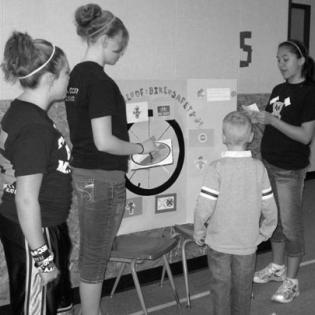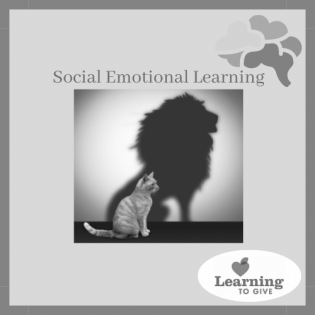The learners view works of art that advocate for social change and find that art can influence social change. The learners select an issue of human rights and create a work of art that represents the issue. They write a paragraph of explanation about their work.
Filter by subjects:
Filter by grades:
Filter by audience:
Filter by issue area:
Filter by content type:
Filter by resource type:
resource search
Learning about issues and using our voice is a right and a civic responsibility and vital to a healthy democracy. Teaching youth at the earliest ages about using their voice prepares them to be civically engaged as adults. It teaches them to learn more about issues and see each person as a valued member of society with an equal vote and an important voice.
Ignite meaningful action that lights up the world through "Service Sparks" youth projects! Share your knowledge and ideas for action about an issue you care about through writing and illustrating an ABC book. This format is great for teaching younger children (or anyone) about the vocabulary of inclusion and respect. Alternatively, write lyrics to a song and perform it to share your passion.
This classic children’s tale, The Lorax, is a timeless call to protect and preserve our natural resources. The Lorax explores the interconnected world of nature and the possible damage if we don’t act responsibly. This book demonstrates the all-too-real consequences for careless consumption
Teach traits such as responsibility, fairness, and integrity through 20-minute creative lesson plans that provoke conversation and reflection. These character education mini-units, created by teachers for middle school classrooms, contain critical thinking, group interaction, and application of philanthropic principles while students explore nine different character traits. Great for a year of Advisory!
Definitions
Courageous Conversations about social justice are an Everyday SEL practice. These prompts can be used to facilitate conversations that aim to build empathy and connection by inviting participants to speak and listen from the heart. Courageous Conversations take place after a stimulus, such as a video or image, is introduced. A stimulus is used to build background and stimulate thinking and discussion.




